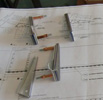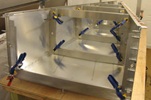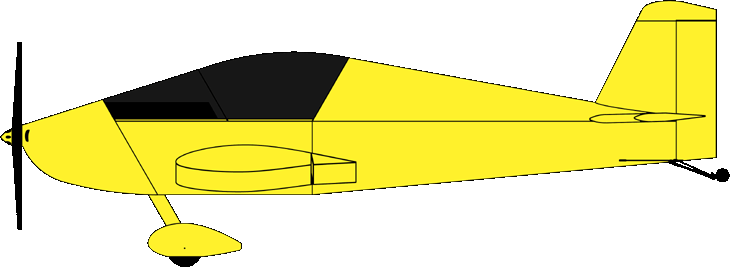


random user submitted photo
Oil filters on a VW anybody else installing one?
23 posts
• Page 3 of 3 • 1, 2, 3
Re: Oil filters on a VW anybody else installing one?
Many discussions about external oil filters and preheating the AeroVee. What makes the AeroVee different than a VW engine in a street car? Or any street car engine for that matter. I don't preheat my car before I start it up, and no problems are encountered on extremely cold days.
I have had many stock car engines with high volume, high pressure oil pumps, and again no problems starting in cold weather.
Just something to think about.
Terry
I have had many stock car engines with high volume, high pressure oil pumps, and again no problems starting in cold weather.
Just something to think about.
Terry
- SNX1508
- Posts: 74
- Joined: Sun Dec 11, 2011 6:53 am
Re: Oil filters on a VW anybody else installing one?
SNX1508 wrote:Many discussions about external oil filters and preheating the AeroVee. What makes the AeroVee different than a VW engine in a street car? Or any street car engine for that matter. I don't preheat my car before I start it up, and no problems are encountered on extremely cold days.
I have had many stock car engines with high volume, high pressure oil pumps, and again no problems starting in cold weather.
Just something to think about.
Terry
I think the major differences are in construction. A traditional automobile engine doesn't care how much it weighs, so it's made of much thicker and heavier materials (more durable). The AeroVee (VW) specifically warns against using aviation oils because the oil passages are much smaller than in a traditional aircraft engine, and won't flow properly. So the oil system is less robust and more subject to restrictions than in a Lycoming or Continental. My car can go 5,000 miles between oil changes, but that's not a good idea in any airplane engine simply because it's made light, and is not so robust. So while no VW aficionados that I've read about can say that preheating is a good or a bad idea, since the VW is typically not as hardy as a traditional car or airplane engine, I'm choosing to treat it at least as well as I would a Lycoming or Continental. As for an oil filter, the VW bug engine has been around for decades without a filter, and it just adds another point of failure, so I'm going old-school and sticking with the screen. If your VW bug engine starts making metal or quits on the side of the road you call a tow truck. In the air, well... :?
Mike Smith
Sonex N439M
Scratch built, AeroVee, Dual stick, Tail dragger
http://www.mykitlog.com/mikesmith
Sonex N439M
Scratch built, AeroVee, Dual stick, Tail dragger
http://www.mykitlog.com/mikesmith
- mike.smith
- Posts: 1430
- Joined: Tue Jan 29, 2013 8:45 pm
Re: Oil filters on a VW anybody else installing one?
All good points.
I am planning to install an external oil filter for initial engine running and testing, just in case there is any metal flashing etc floating around, but will most likely remove it before taking to the air.
Terry
I am planning to install an external oil filter for initial engine running and testing, just in case there is any metal flashing etc floating around, but will most likely remove it before taking to the air.
Terry
- SNX1508
- Posts: 74
- Joined: Sun Dec 11, 2011 6:53 am
23 posts
• Page 3 of 3 • 1, 2, 3
Who is online
Users browsing this forum: No registered users and 20 guests







